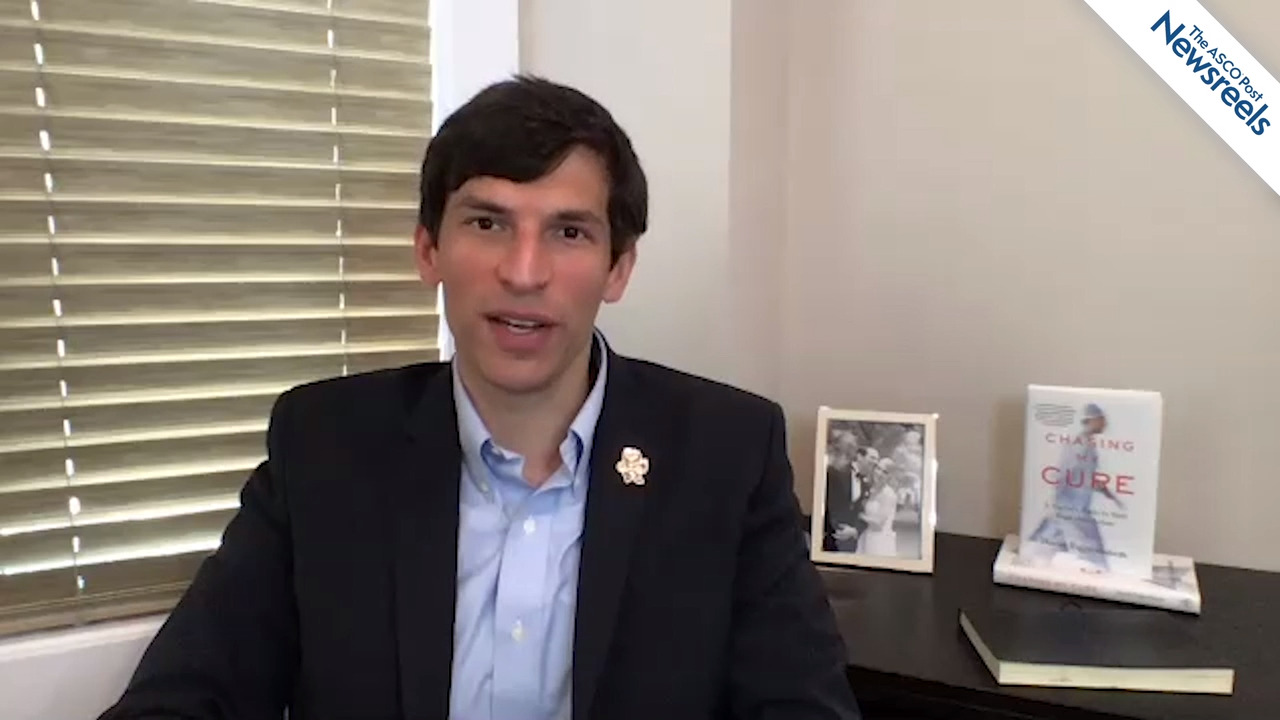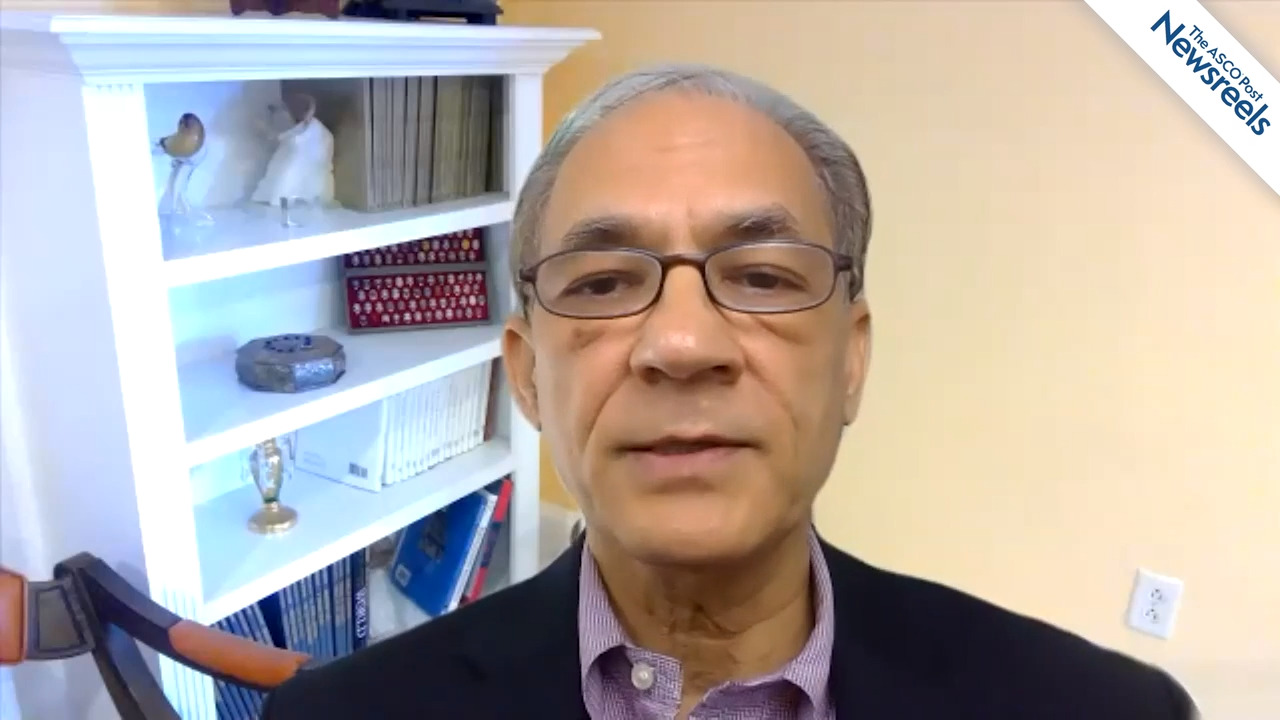Nirav Niranjan Shah, MD, on DLBCL: Autologous Transplant vs CAR T-Cell Therapy
ASCO20 Virtual Scientific Program
Nirav Niranjan Shah, MD, of the Medical College of Wisconsin, explores whether autologous transplantation, in patients with relapsed diffuse large B-cell lymphoma who achieve only a PET/CT-positive partial remission, is appropriate in the era of CAR T-cell therapy (Abstract 8000).
The ASCO Post Staff
David C. Fajgenbaum, MD, MBA, of the University of Pennsylvania, who trained as an oncologist, summarizes his opening lecture, a dramatic story of his battle against Castleman, a disease of the lymph nodes, his multiple near-death experiences, and the path that led him to develop a cooperative research effort making a difference for him and other patients with this idiopathic orphan illness.
The ASCO Post Staff
Scott Kopetz, MD, PhD, of The University of Texas MD Anderson Cancer Center, discusses phase III results of the BEACON CRC study, which confirmed that, compared with standard chemotherapy, encorafenib plus cetuximab with or without binimetinib improved overall survival and objective response rate in previously treated patients with BRAF V600E–mutated metastatic colorectal cancer (Abstract 4001).
The ASCO Post Staff
Christopher Nutting, MD, PhD, of the Royal Marsden Hospital and Institute of Cancer Research, discusses phase III results from the first study to demonstrate the functional benefit of swallow-sparing intensity-modulated radiotherapy in oro- and hypopharyngeal cancers (Abstract 6508).
The ASCO Post Staff
Nikhil C. Munshi, MD, of Dana-Farber Cancer Institute, discusses initial results from the KarMMa tria, showing that idecabtagene vicleucel, a B-cell maturation antigen-targeted CAR T-cell therapy, demonstrated deep and durable responses in patients with heavily pretreated relapsed or refractory multiple myeloma. Efficacy and safety data support a favorable clinical benefit-risk profile across the target dose range (Abstract 8503).
The ASCO Post Staff
Parameswaran Hari, MD, of the Medical College of Wisconsin, discusses data from four trials and their clinical implications for the treatment of patients with multiple myeloma: the KarMMa and EVOLVE studies on CAR T cell therapies; SWOG-1211 on bortezomib, lenalidomide, and dexamthasone with/without elotuzumab for newly diagnosed, high-risk disease; and the GMMGCONCEPT trial on isatuximab, carfilzomib, lenalidomide, and dexamethasone in front-line treatment (Abstracts 8503, 8504, 8507, 8508).





